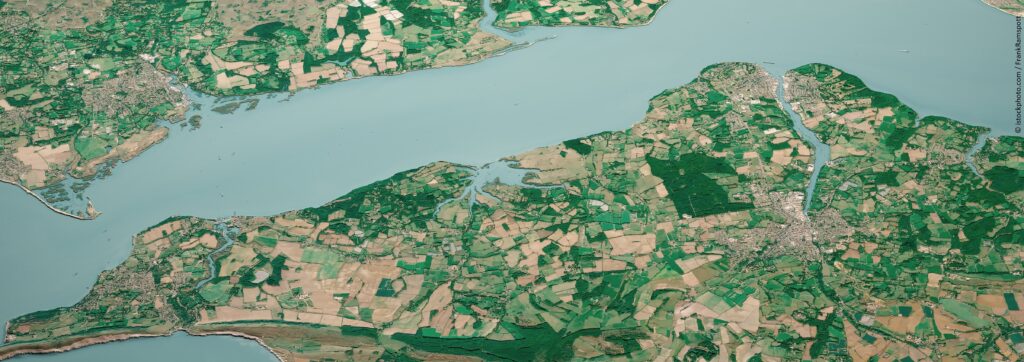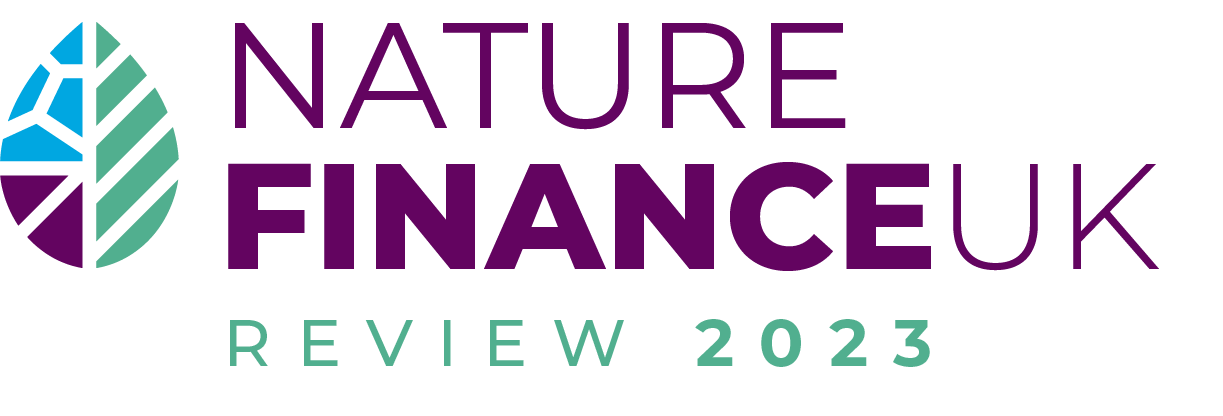Can private money go wild?
Rewilding Britain’s ‘Rewilding Finance’ report published today marks a major milestone in…
Learn what we're working towards, together
Supporting organisations, networks and initiatives
Get to know our team & board of trustees
In our first of a series of insights from leading figures in nature finance, as we publicise our survey, Kate Russell, COO of Tellus Natural Capital, asks how we might find the missing pieces to the puzzle.
Interest in natural capital grew enormously in 2022 and the challenge for 2023 is how we turn that interest into real markets for ecosystem services and nature restoration. This process is a bit like doing a jigsaw, with some of the pieces missing and only an outline of the picture on the box as a guide! We are starting to build up bits of the jigsaw and now we need to start putting those pieces together.
“Reliable demand for environmental goods and services at prices which reflect the considerable long term cost of delivery remains a missing piece of the jigsaw.”
Natural capital markets are starting to emerge, but demand for the environmental goods and services is patchy. In parts of England and Wales a regulatory market for nitrate and phosphate reduction credits has developed in those catchments affected by nutrient pollution, while a statutory market for Biodiversity Net Gain (BNG) will come into effect from November 2023 across England. Both of these will generate real transactions, with long term land use change commitments and significant investment by the purchasers. By contrast, the market for carbon credits has been struggling to find its way forward for several years; the difference being that carbon remains a voluntary market where buyers are making a discretionary purchase, whereas nutrient neutrality and biodiversity net gain have very site-specific or statutory requirements, leaving buyers with much less choice about what they acquire.

There is much discussion about corporate investment in nature restoration and HM Treasury is keen to see private finance replace some of the taxpayer funded agri-environment schemes. There could be exciting opportunities for “private stewardship” agreements, where businesses pay for the maintenance and enhancement of the natural environment directly, but this is only likely to happen on a meaningful scale where there is an imperative on businesses to make that investment. Initiatives such as the Taskforce for Nature Related Financial Disclosures may help to drive this eventually by directing financial flows, but a combination of incentives and regulation could speed the process up. Reliable demand for environmental goods and services at prices which reflect the considerable long term cost of delivery remains a missing piece of the jigsaw.
Government departments are an easy target for critics, but all across the UK they are working hard to help the private sector find new markets for a range of ecosystem services, including through the Investment Ready Nature Scotland (IRNS) and Natural Environment Investment Readiness Fund (NEIRF) grant schemes. This approach is helping lots of projects to test their ideas and we will all benefit from their learning in doing so.
“Perhaps one of the most important pieces missing here is taxation policy.”
Despite this surge of energy, wider Government policy is lagging behind. Perhaps one of the most important missing pieces here is taxation policy. Existing tax reliefs are built upon post-war definitions of agriculture and there is a real risk that the management of land for environmental benefit could lead to the loss of those valuable reliefs if land is no longer considered to be “agricultural”. This is a real deterrent for private landowners in particular, who are particularly exposed to this risk in a way that charitable organisations and corporate bodies are not.
For many years it has been accepted wisdom that British farmers and landowners won’t collaborate, but the Game and Wildlife Conservation Trust (GWCT) has been busting this myth for years with its successful farmer clusters and now there are groups of farmers coming together all over the country to deliver landscape scale environmental improvements. It takes time and effort to build the relationships on which farmer and landowner groups depend and there are inevitably costs involved in bringing a new group together, not least in supporting the skilled facilitators who will be key to making these groups successful.
“When farmers are empowered to engage with nature restoration, they will go further and faster than under a “prescribe-and-pay” approach.”
Persuading farmers to work together with other farmers is only the first step – we are also seeing much more collaboration between farmers, land managers, businesses such as water companies and environmental groups. Finding the point of common ground is a crucial starting point in order to build consensus among those who might have different long term aims; sometimes these collaborations need to start small, at a very local scale, in order to build trust and confidence. Then, like our jigsaw, those smaller groups might join together to cover whole catchments or landscape areas.
We need to find ways to make these large scale schemes equitable to all the participants while being sufficiently flexible to accommodate changes in circumstances for an individual farm business within the group. However we are already seeing that when farmers are empowered to engage with nature restoration, they will go further and faster than under a “prescribe-and-pay” approach.
Learning from each other is vital in this fast-moving sector and EKN’s Nature Finance Review 2023 will help us all to share our experiences, build the bigger picture and identify and find those missing pieces of this fascinating jigsaw.

Are you involved in restoring land, water and nature in the UK?
Are you working to attract new forms of revenue and private finance?
With funding support from the Esmée Fairbairn Foundation, the Ecosystems Knowledge Network is launching an annual review of projects in the UK that are seeking revenue or investment finance from private sources. The aim is to help projects – and those wishing to support them – to understand the opportunities and challenges associated with generating revenue and utilising innovative finance for environmental restoration.
Take part in our surveyKate Russell is the COO of Tellus Natural Capital Ltd. She is a Chartered Surveyor, a fourth generation Agricultural Valuer, a Professional Member of the Institute of Agricultural Management and a Chartered Environmentalist.
With a degree in Rural Land Management from the Royal Agricultural College, Kate worked in private practice in Cumbria, Wiltshire and Lincolnshire for more than a decade, returning to the RAC to lecture in rural estate management for several years. She then spent 13 years as a Technical and Policy Adviser with the Central Association of Agricultural Valuers, briefing its members across the UK, representing the CAAV in policy work and writing technical publications on topics including compulsory purchase, residential property management and renewable energy.
A growing interest in the natural environment and the opportunities offered by the natural capital approach led Kate to establish Tellus Natural Capital Ltd in 2021 with three fellow directors. The business offers natural capital consultancy to farmers and landowners across the UK to help them to prepare for and take advantage of emerging new markets in ecosystem services.
Kate lives in Oxfordshire with her husband Tim, a farm manager. She is a member of the IAgrM Council, sits on the CAAV’s Environment and Land Use Committee and is a Liveryman of the Worshipful Company of Farmers.
Already have an account? Sign in here